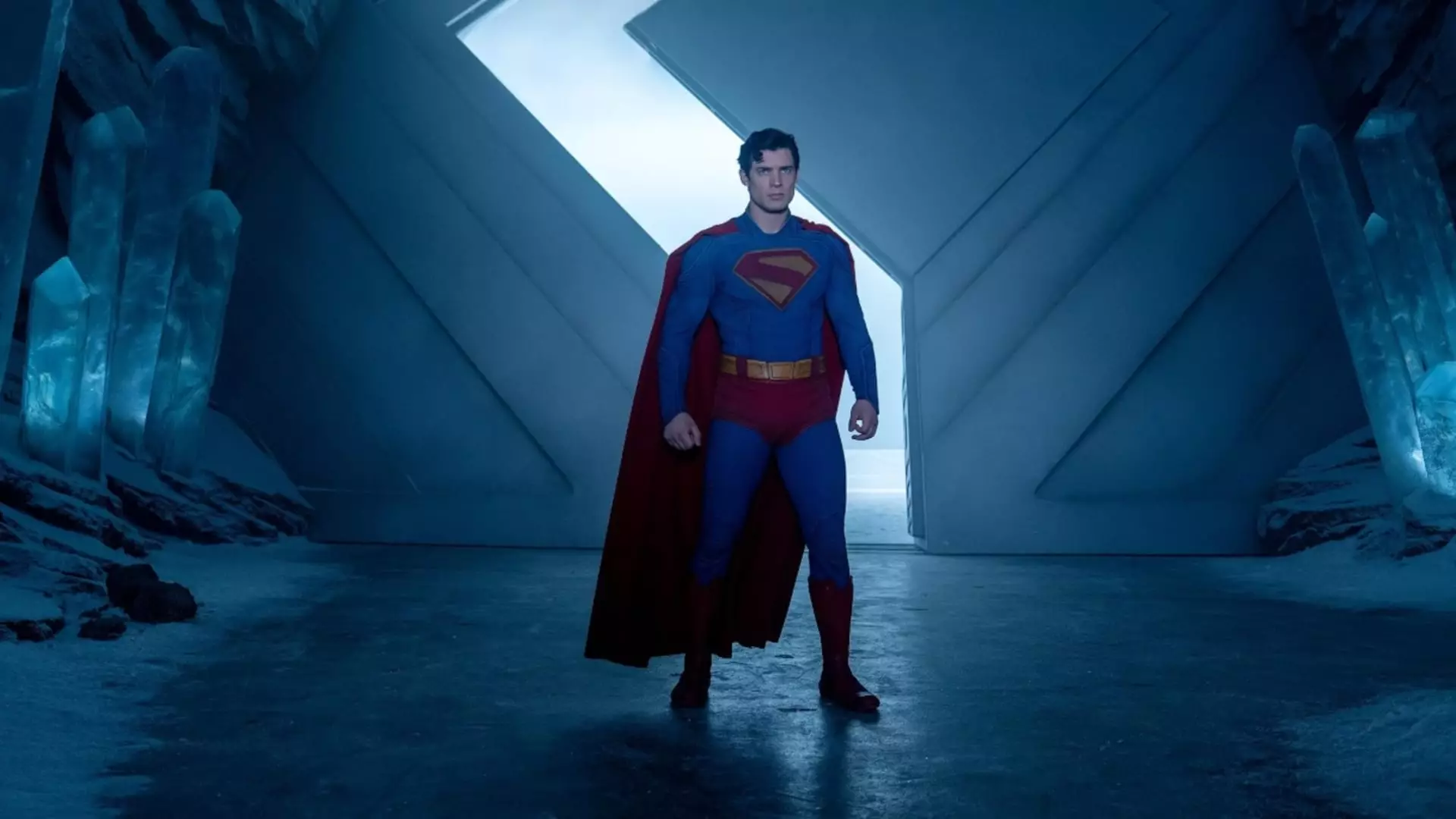Recent box office figures suggest Warner Bros. might be onto something with their latest Superman reboot, but underneath the surface, questions loom large about whether this new chapter signifies genuine renewal or merely superficial revival. With a preview haul of $22.5 million, “Superman” has set a new benchmark for DC films, signaling potential optimism among fans and industry insiders alike. However, a closer look reveals a complex picture: numbers can be deceiving, and faith in blockbuster hits often masks deeper issues within franchise management.
While early indicators show promise, the film’s initial performance remains within a competitive yet uncertain frame. Its preview figures place it comfortably among recent superhero hits, edging out past Superman installments like “Man of Steel.” But the true test lies ahead—the film’s ability to sustain audiences beyond the opening weekend and reshape perceptions long fraught with franchise fatigue. The hope is that this reboot can breathe new life into Superman’s mythos, but considerable doubts persist about whether it will transcend the inherent risks of franchise reruns.
Are We Witnessing Genuine Innovation or Just Reinforced Familiarity?
James Gunn and Peter Safran entered their DC stewardship with high hopes, promising a bold new direction. However, their approach—rebooting familiar characters with fresh spins—raises the question: is this strategy a creative renaissance or a cautious, formulaic ploy? The industry often rewards innovation, yet studios tend to cling to proven formulas, especially when previous attempts have dwindled in box office relevance.
Fundamentally, the challenge revolves around balancing nostalgia with novel storytelling. Superman, as an icon, bears the weight of decades of cinematic history, and each iteration grappled with maintaining relevance. Gunn and Safran’s early efforts evoke optimism, particularly with critics’ positive ratings, but translating critical praise into sustained financial success is no guarantee. It remains to be seen whether this reboot can ignite the cultural passion that propelled the character to legendary status or if it falls victim to formulaic execution that ultimately fails to inspire.
The Broader Implications: Does This Signal a Shift Toward Hopeful Narratives?
In an era where superhero narratives are often marred by cynicism and dark, gritty themes, DC’s attempt at a hopeful, optimistic Superman could be a breath of fresh air. The narrative shift aims to reengage audiences tired of bleak realism, emphasizing themes of heroism, morality, and hope—values inherently linked to Superman’s identity. Yet, this pivot is not without risk; it can alienate viewers seeking darker, more complex stories, or it can come across as an unrealistic repositioning unanchored from current societal debates.
While a focus on hope seems timely, especially amid global uncertainties, it must be executed with authenticity. Superficial optimism dressed up as meaningful storytelling rings hollow if it doesn’t challenge or reflect contemporary struggles. The key lies in crafting narratives that resonate emotionally, transcending superficial cheerfulness, instead engaging audiences through nuanced characters and meaningful conflicts.
The Future of the DC Franchise: Hope, Momentum, or Inevitable Repetition?
Ultimately, the success of this reboot hinges on DC’s ability to sustain audience interest and deliver stories that remain relevant. The film’s opening numbers are promising but not definitive. The industry knows well that initial box office spikes can be fleeting, especially in a crowded marketplace where superhero fatigue still lurks. For Warner Bros., the challenge will be maintaining momentum through strategic storytelling, roster diversification, and consistent quality.
Moreover, the broader industry must question whether Superman—and similar icons—can ever escape the trap of repeated reinterpretations. Fashioning a fresh, compelling version requires more than surface-level updates; it demands genuine creativity and a willingness to take risks that respect the character’s core while pushing boundaries. If Warner Bros. manages to achieve this, the future could be bright. If not, it risks reinforcing doubts about the franchise’s vitality, reducing Superman once again to a superficial symbol rather than a compelling hero for a new generation.

